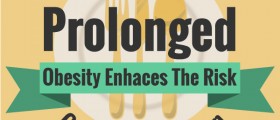
One of the issues of our zeitgeist's medical trend's is child obesity. Namely, more children are getting fatter and fatter, and, furthermore, the trend is rising at an a alarming rate. The following article is a list of facts, explained, concerning blubbed in children.
The obesity rates trends have, since the last decade, doubled for the following two categories:
children between the age of two to five
children between the age of twelve and nineteen.
And what of the kids caught up between six and twelve? Are they clear of this horrible phenomena? It is safe to say that at least their obesity rates haven't doubled – they've actually tripled. As a side note, the kid's gender doesn't appear to play a significant role in the statistic; when it comes to today's kids, the boys as the girls are equally obese.
As history shows us, some trends, such as “fat people are rich people” which were true hundreds of years ago, mean the exact opposite today. Because the food that makes you fat today, is the lowest quality food available on the local supermarket's shelves. This could, naturally, lead to one of two convolutions: that people do no longer care about food quality and are sufficed with the cheapest stuff out there, or that there is an economic crisis going on.
There is a difference between careful ethical groups and symptomless. This means that a portion of the fat kids may be the result of poor genetics. This may only be held for a part of the demographic, the rest is mostly up to ill habits of wheezing ingestion which, too, appear to be trending nowadays.
Here's a list of well-being risks, apart from hindered movement, that an obese child is exposed to:
bleeding
diabetes
arthritis
and, many, many more.
But the dangers are not merely physical as there tend to be certain other types as well. There is a considerable number of psychological ones, too. So here's a few of those, too:
laziness
obtuse
lacking self check.
If the problem is not genetic, it's mostly the parents' fault. After all, it is not only a parent's duty, but should be the psychological urge, as well, to provide his or her own child with the healthiest, most wholesome diet available, so that the kid may retain both physical and psychological stability through the formative years.











_f_280x120.jpg)





Your thoughts on this
Loading...